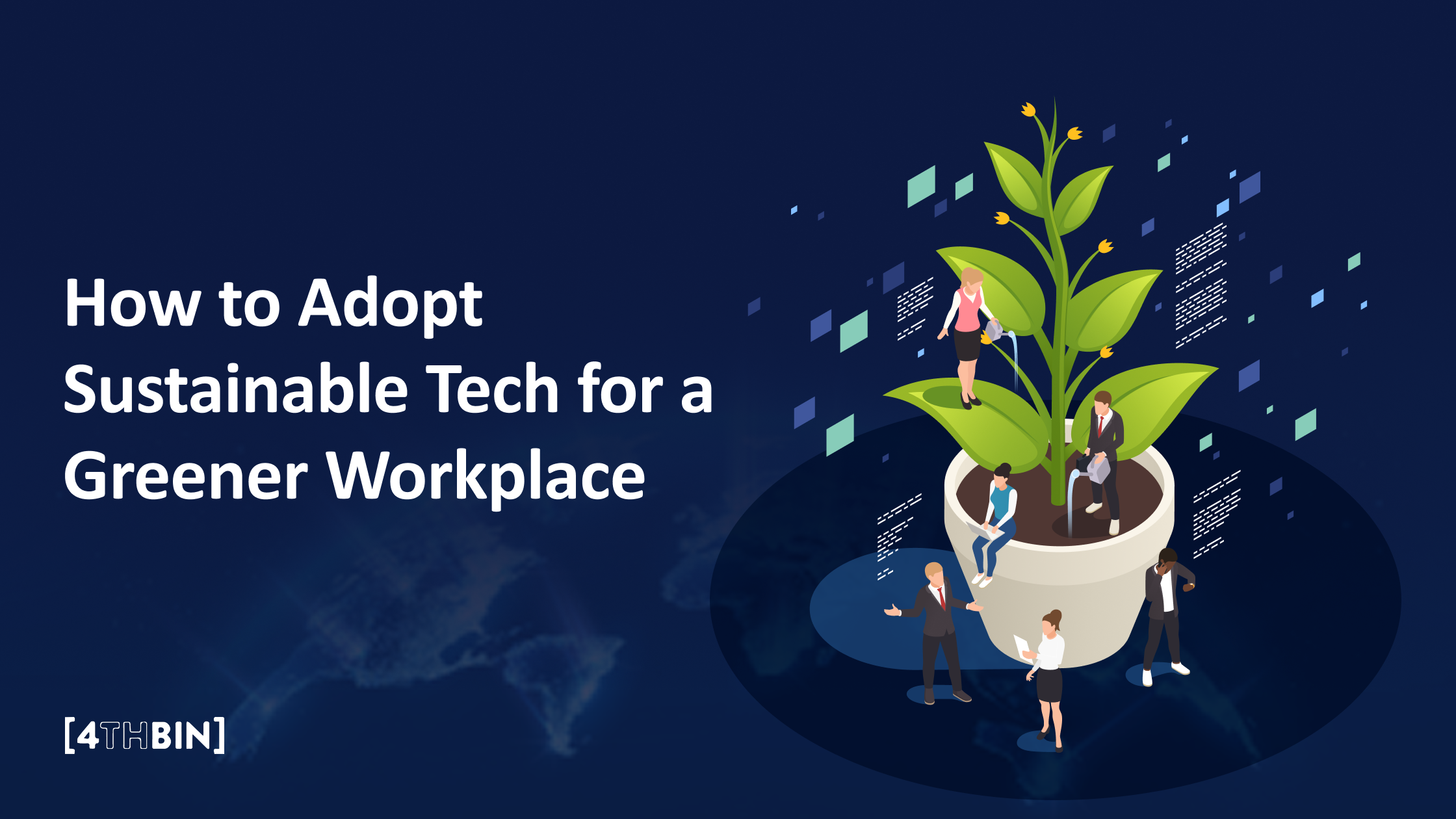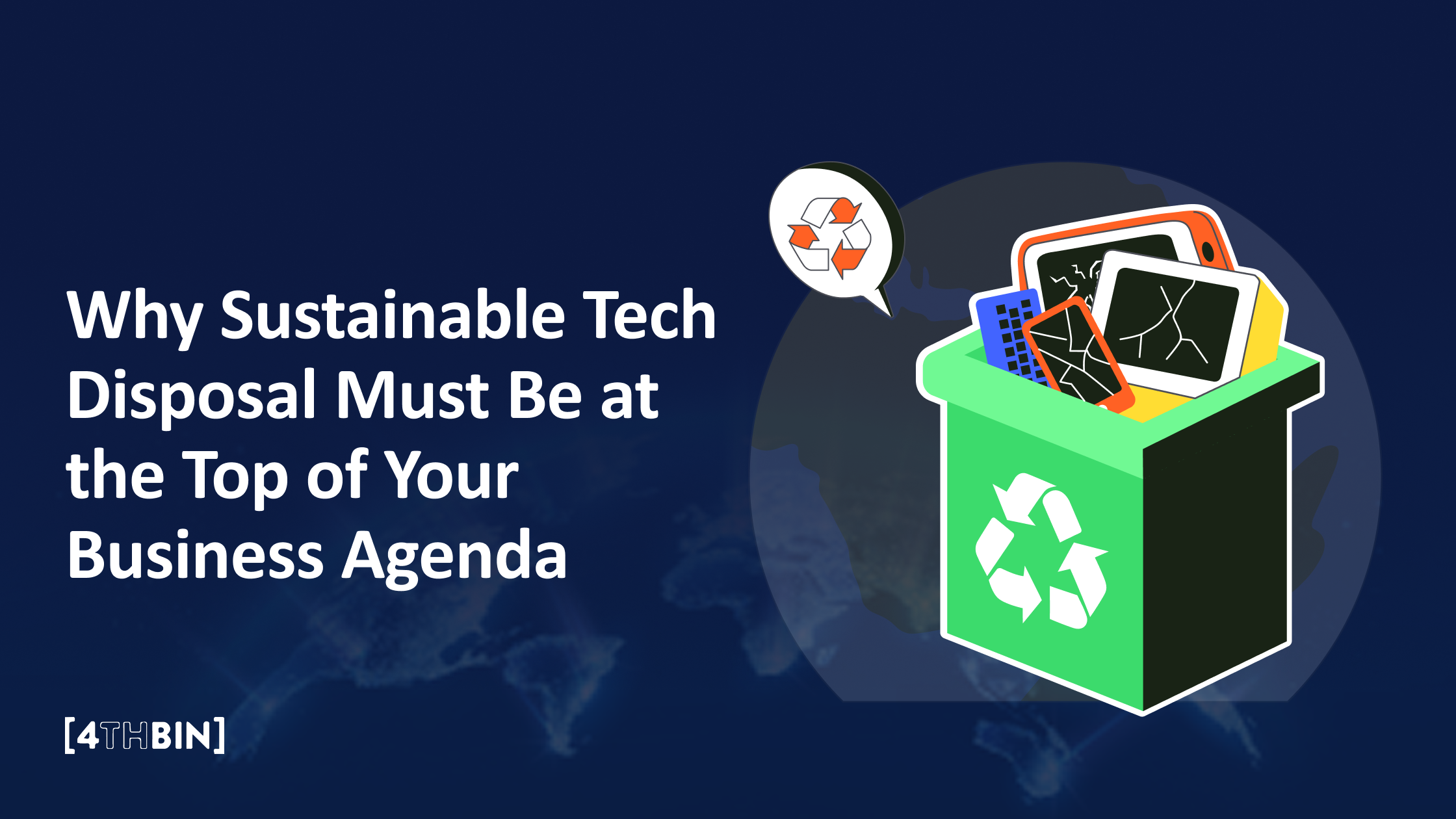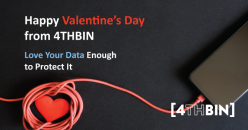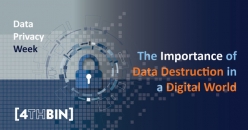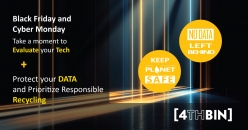The Lifecycle of Recycled Electronics
Did you know that the world generates over 50 million tons of electronic waste annually, which will double by 2050? That’s the equivalent of throwing away 1,000 laptops every second! Yet, within this mountain of discarded electronics lies a goldmine— quite literally.
E-waste contains valuable materials like gold, silver, and copper, often worth more than the gadgets themselves. In fact, according to a UN report, the annual e-waste produced globally is valued at over $62.5 billion. A ton of e-waste contains more than 100 times more gold than a ton of gold ore, making it a resource wealthier than many countries’ economies.
But what happens after you drop off those outdated devices at a recycling center? How are those hidden resources extracted, and how does this process benefit the environment and your business? Recycling electronics is not just about clearing the clutter; it’s a strategic opportunity for businesses to protect the environment, recover value, and contribute to a circular economy.
In this blog, we’ll take you through the complete lifecycle of recycled electronics—from collection and sorting to extraction and reuse— demonstrating how businesses can make the most of their old electronics.
The Lifecycle of Recycled Electronics: What Happens Once Disposed?
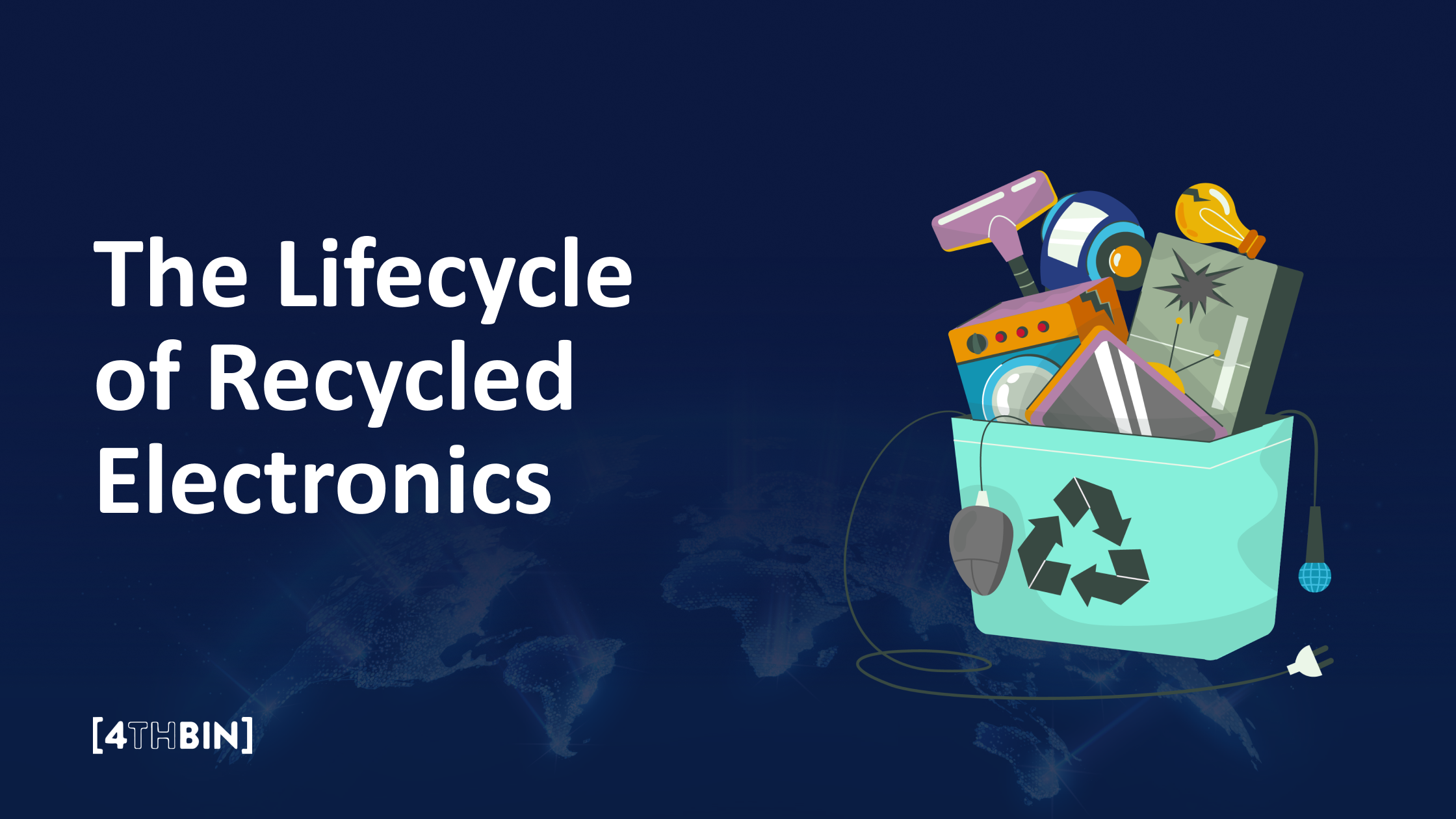
When businesses dispose of outdated electronic devices for recycling, those devices embark on a journey far beyond the collection bin. Here’s a closer look at how e-waste is turned into a reusable resource, ensuring a sustainable outcome for your business:
Collection & Drop-Off
The first step in the e-waste recycling process is the collection phase. Electronics are gathered through dedicated business drop-off points, corporate e-waste drives, and mail-in programs. E-waste management companies like 4THBIN are crucial in helping businesses streamline the collection of outdated devices.
These companies or collection services offer flexibility for businesses—whether through scheduled pick-ups or easy mail-in solutions—ensuring that obsolete electronics don’t go to waste. These efforts lay the foundation for turning discarded devices into valuable resources.
Sorting & Dismantling
Once the collected electronics arrive at a recycling facility, they are sorted by type and condition. Devices like laptops, desktop computers, servers, and other office equipment are separated to ensure the appropriate recycling processes are applied to each type.
After the devices are segregated, dismantling begins. Components such as metals, plastics, glass, and hazardous materials are separated. Some parts are shredded into smaller pieces, while others require precise manual handling. The goal is to strip away all materials that can be reused using a combination of advanced shredding machines and skilled dismantling techniques. This stage sets the stage for extracting valuable materials that can be reintegrated into the supply chain.
Extraction of Valuable Materials
Electronic devices contain valuable materials, such as gold, silver, copper, and aluminum, that can be recovered from various components. The extraction process involves several methods to separate these elements from other materials, such as:
Mechanical Separation: This involves shredding and crushing devices into smaller pieces, using magnets, air currents, or water baths to separate metals from plastics and other components. It is a crucial step that helps sort different materials.
Pyrometallurgy (Smelting): This method uses high temperatures to melt metals, allowing them to be separated from other materials. It’s effective for recovering precious metals like gold and silver but requires careful control to minimize emissions.
Hydrometallurgy (Chemical Leaching): In this process, chemicals like acids or cyanide solutions dissolve metals, which are then precipitated and purified. This method is commonly used for extracting gold and other high-value metals.
Electrochemical Methods: These methods use electrical currents to recover metals from dissolved solutions, offering precise recovery of metals like copper and gold from e-waste.
Companies like 4THBIN also offer specialized silver recovery programs to recover materials more efficiently, ensuring that businesses extract maximum value from discarded electronics. By recycling instead of relying on new raw materials, companies help reduce the need for environmentally harmful mining operations, resulting in energy savings and a reduced carbon footprint.
Refining & Purification
After extraction, valuable materials undergo refining and purification to prepare them for reuse. This process involves several methods to transform the recovered elements into pure metals, ready to be reintegrated into new products:
Electrorefining: This method uses an electric current to dissolve impure metal into an electrolyte solution, allowing pure metal to deposit onto an electrode. It’s particularly effective for refining copper and other metals, producing high-purity results.
Chemical Purification: It involves using chemical solutions to remove impurities from extracted metals and, for example, using acids or other solvents to dissolve unwanted materials while isolating the desired metals.
Re-smelting: For some materials, further smelting at controlled temperatures helps remove remaining impurities. This ensures that metals like gold and silver reach the required purity for industrial applications.
These processes result in metals that are pure enough to be used again in various industries. For example, gold reclaimed from old office computers could find new life in electronics, automotive parts, or high-tech manufacturing equipment.
Refining consumes significantly less energy than mining and processing raw materials, contributing to a smaller environmental footprint. This approach is crucial in transforming waste into valuable resources for future use, making recycling a responsible and efficient choice.
Reuse, Refurbish, or Recycle
Not every discarded electronic device needs to be fully dismantled. Many can be refurbished, extending their life cycle through several processes. Devices in good condition—like lightly used laptops or servers—can be cleaned, repaired, and upgraded with new software, making them suitable for resale or donation. Here are some of the typical processes involved in refurbishment:
Diagnostic Testing: Each device undergoes a thorough evaluation to identify hardware or software issues. This process ensures that only functional components are reused and any faulty parts are addressed before further steps.
Replacement & Repair: Damaged or outdated parts, such as hard drives, RAM, or screens, are replaced with new or compatible components. This ensures that refurbished devices meet performance standards and function effectively.
Data Wiping: Certified data erasure is performed to ensure that all previous data is securely deleted, protecting business information. After this, new operating systems and software are installed, bringing devices up to date and ready for reuse.
Restoration: Devices are cleaned, and, if necessary, external parts like casings are replaced or repaired. This process ensures that refurbished devices are functional and visually appealing for resale or donation.
This approach allows businesses to reuse older equipment while reducing the need for new purchases, offering a cost-effective and eco-friendly solution. If e-waste recyclers can’t refurbish specific electronic components, they re-enter the recycling process, extracting and repurposing materials. This sustainable strategy ensures that every possible part is reclaimed, helping businesses minimize their e-waste footprint and actively contribute to a circular economy.
Safe Disposal of Non-Recyclable Materials
Despite the best efforts to recycle and refurbish electronic devices, some parts remain non-recyclable. These materials require specialized disposal methods to prevent environmental harm. Leading recycling companies, like 4THBIN, use certified disposal methods to ensure that even non-recyclable remnants are handled responsibly.
By following strict compliance and environmental standards, businesses can ensure their e-waste management aligns with sustainability goals. Additionally, ongoing innovation in the recycling industry is reducing the volume of non-recyclable materials, making the lifecycle of recycled electronics more complete and eco-friendly.
What Businesses Must Consider When Recycling Electronics
Recycling electronics is not just about clearing out old devices; it’s a strategic decision that can significantly impact your business’s sustainability efforts and compliance. Here’s what businesses need to consider when recycling their e-waste:
Choose a Certified E-Waste Recycling Partner
The most critical step in recycling electronics is selecting the right e-waste recycling company. Your organization must look for certifications like R2 (Responsible Recycling) or e-Stewards, which indicate that the recycler follows stringent standards for handling and processing electronic waste. This ensures that your business’s discarded devices are processed safely and responsibly.
Evaluate Cost vs. Value
While cost is essential, choosing a recycling partner shouldn’t be the only factor. Your organization must consider the long-term value of working with a reputable company offering secure and compliant services. The lowest-price option may lack the necessary certifications or data security measures.
Additionally, a good e-waste recycler will also help you recover value from retired assets. This might include refurbishing and reselling devices in good condition or reclaiming valuable materials like gold, copper, and rare earth metals from outdated equipment. This can help offset some of the recycling costs.
Ensure Regulatory Compliance
Depending on your location, strict regulations may govern electronic waste disposal. Partnering with a recycling company that understands and follows local, state, and federal regulations helps ensure your business remains compliant and avoids potential fines or penalties.
Your recycling partner must provide documentation for each step of the recycling process, including proof of data destruction, certificates of recycling, and detailed reports. These records are crucial for audits and demonstrating your company’s commitment to sustainability.
Consider Logistics and Convenience
The best e-waste recycling companies offer flexible collection options to suit your business needs, whether a one-time pickup for an office upgrade or ongoing services for multiple locations. A convenient drop-off or mail-in program might be ideal for smaller devices. Your organization must look for a partner who can offer various collection methods, making the process as smooth as possible for your team.
Businesses can make informed decisions about their e-waste recycling strategies by considering these factors. Choosing the right partner ensures that your old electronics are handled responsibly, sensitive data is protected, and your company’s environmental goals are met—all while potentially recovering value from discarded electronics!
Recycle Your Electronics Responsibly with 4THBIN.
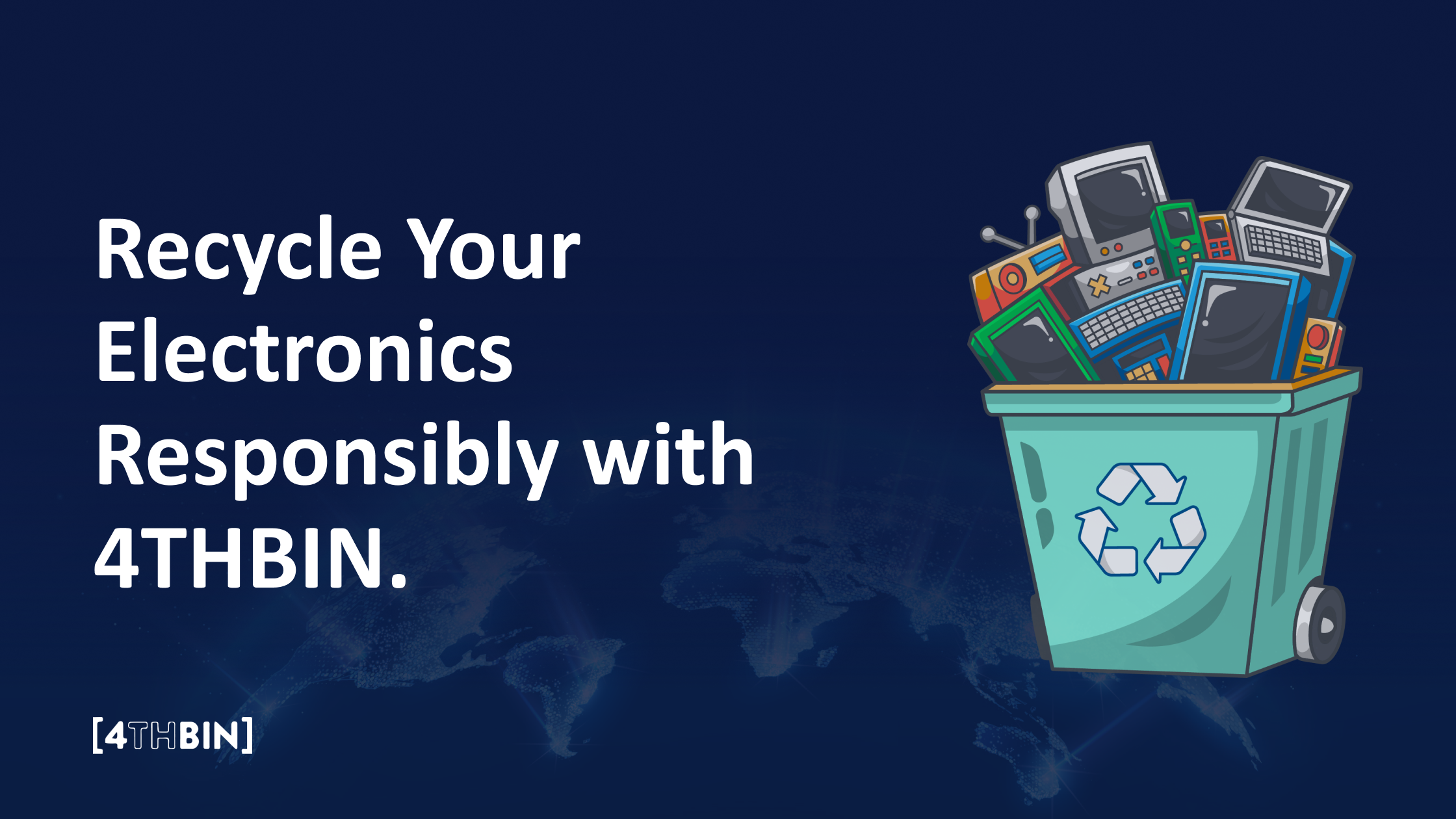
With over a decade of experience, 4THBIN is a certified and secure e-recycling solution provider to over 10,000 businesses – from Fortune 100 companies to start-ups across the United States.
We specialize in helping organizations safely and sustainably dispose of a full range of electronics, from desktops to data centers, while ensuring compliance with environmental regulations and protecting sensitive data.
Through our secure RemoteReturn program, and on-site collection, we offer flexible and reliable e-waste solutions suited to your business needs.
We believe that no data should be left behind! Backed by our data security expertise, we provide certified data destruction support to today’s top industries. In addition, we help businesses fulfill their corporate social responsibility commitments by securely recycling their e-waste and contributing to a greener future.
Recycle Responsibly. Recycle Right.
Contact Us


